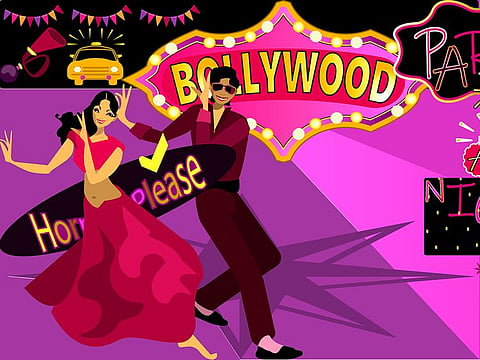Should Bollywood perish? Many think, yes
Indian filmmaking will be richer without Bollywood, as new filmmaking culture replaces it

Bollywood actor-producer Aamir Khan has identified the reason why OTTs or online movie streaming platforms are hurting Bollywood. The error Bollywood is making, he said in an interview, is that it releases its movies on OTTs just a few weeks after they stop showing in the cinemas.
According to him, the quick fix is to wait for months rather than weeks. This, he posits, will get audiences back into the theatres. They may not want to wait until the movie no longer feels ‘current’.
Therein lies the devilish trick of Bollywood. Here is how it goes. Spend money making a movie. Spend an equal amount of money in marketing it. When we are told a movie cost 100 crores, it means that 50 crores was the cost of publicity alone.
This hyper publicity and marketing creates what millennials call FOMO — the fear of missing out. On TV and radio, in the hoardings and the magazines, if you are constantly bombarded with talk about a movie, images of its ‘stars’, you will want to check out the movie out of curiosity. Reviewers and friends may diss it, but you’ll still be curious.
You’ll often hear people say about a Bollywood movie, “It wasn’t bad. A one-time watch. I went with low expectations so I didn’t hate it.”
If you’ve ever discussed a Bollywood movie with friends, you’ve heard them say something like that. Funny how people spend time and money to go to a cinema despite ‘low expectations’. It’s the FOMO.
The empty theatres
It’s also that a movie “outing” is many people’s idea of leisure. People go into a cinema not only for the movie but also for the experience, as Ajay Bijli never tires of telling us.
Mr Bijli is the CEO of India’s largest multiplex chain, PVR, which has bought over its competitor INOX. Guess what? Mr Bijli’s theatres are empty when screening Aamir Khan’s film Lal Singh Chadha and Akshay Kumar’s film Raksha Bandhan.
Things must be really bad that PVR is encouraging people to hire a theatre and screen whatever movie they like for friends and family — even something from an OTT platform.
The joy of watching a movie on the big screen may never die, which is why PVR stocks do so well. But Bollywood has lost its power to draw people into the theatres.
Aamir Khan’s identification of the problem is incorrect. At least Akshay Kumar is more honest: he said about his serial flops that maybe he’s doing something wrong in the kind of films he’s doing.
Some think Aamir Khan’s Lal Singh Chadha was a flop because of a boycott call by majoritarian nationalists. In that case, why is the nationalist poster boy Akshay Kumar also not tasting box office success anymore?
Some think people don’t want to spend money on theatres. One film outing for a family, including the overpriced popcorn, can cost more than the annual subscription of an OTT platform. If that were the case, why have some South Indian films been such blockbuster hits lately?
Bollywood’s moment of truth
The simple truth that Bollywood’s big names are unable to accept is that their movies are really bad. They are preachy and predictable, the actors can’t act, the plots are thin, the music forgettable. When a “star” like Aamir or Akshay Kumar is on screen, you don’t see the character.
You see Aamir Khan being Aamir Khan. Such is the lack of originality in Bollywood that Lal Singh Chadha is an official remake of Forrest Gump. As for Akshay Kumar, the social media joke is that he will soon act in a film on the latest news event.
We were forced to watch these talentless actors and their films for years because we didn’t have options. Covid-induced lockdowns, which kept cinema halls shut for longer than anything except schools, hooked the masses onto the OTT platforms.
Hindi-speaking audiences binge-watched Money Heist in Hindi dubbing. Korean shows are discussed in parties as if everyone has watched them. People feel sorry for you if you haven’t seen Game of Thrones. Those who used to watch slapstick Bollywood comedies now watch Scandinavian noir shows.
Bollywood no longer has captivating stories to tell, or convincing actors to act in them. Bollywood, an “industry” that could never give itself even an original name, keeps deteriorating in service of ‘stars’ and ‘star kids’.
Democracy comes to Karanjoharland
OTT platforms have done to Bollywood what democracy did to princely states of India. It has dethroned them. OTT platforms, which even commission content from Bollywood studios, are just more willing to experiment and take risks.
It is not just global content that Indians are watching on OTTs. Bollywood must ask itself why a series like Sacred Games is not made for theatres today.
There are now a multitude of OTT platforms, including the likes of Voot and Zee5, which serve up ‘masala’ content including originals with Bollywood stars. These find their own audiences.
The OTT medium, like the web in general, is more democratic and democratising. It does not privilege those with a 50 crore marketing budget. People are not forced to watch a bad movie just because they bought a ticket.
Bollywood today is like Indian industry in 1991, when the India government decided to open up the economy to foreign investment and imports.
There were companies and entire industries that collapsed because they could not survive global competition. There were those that thrived because they adapted, improved quality and started thinking global to sell local.
Bollywood is at a similar crossroads. It could adapt or perish. What’s the harm if Bollywood perishes? A new kind of filmmaking culture will replace it, one that does not need the approval of a few old men in Mumbai.



